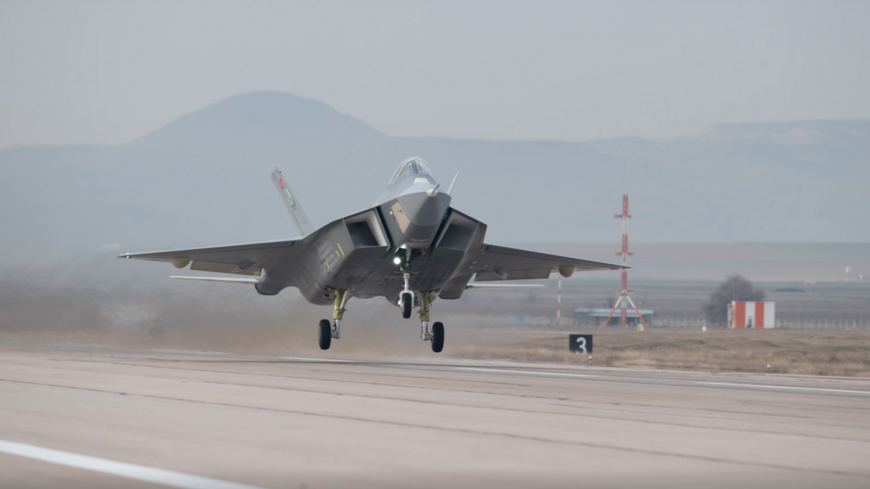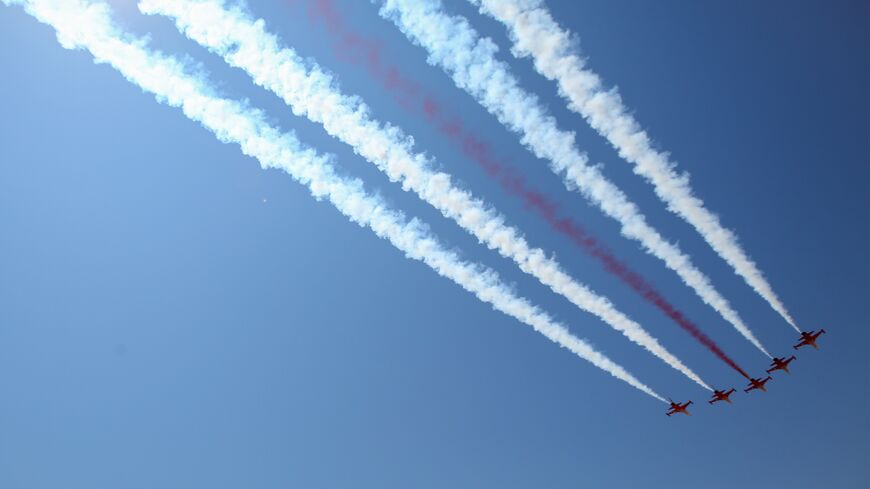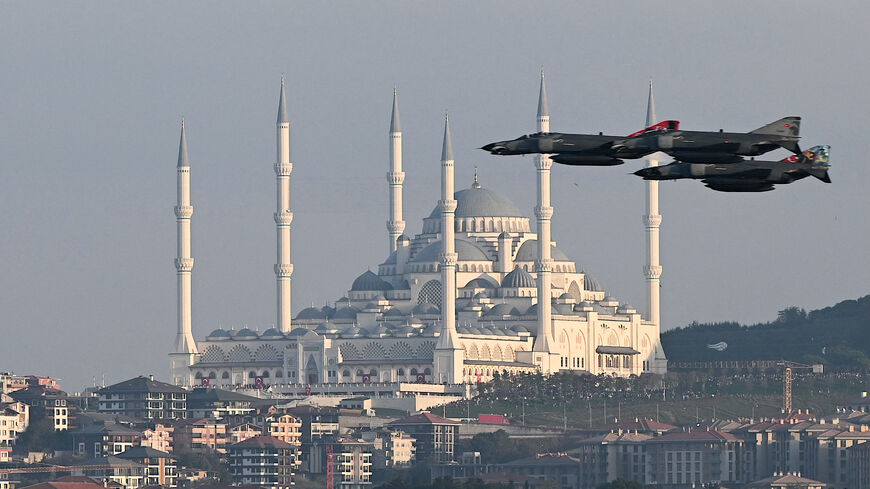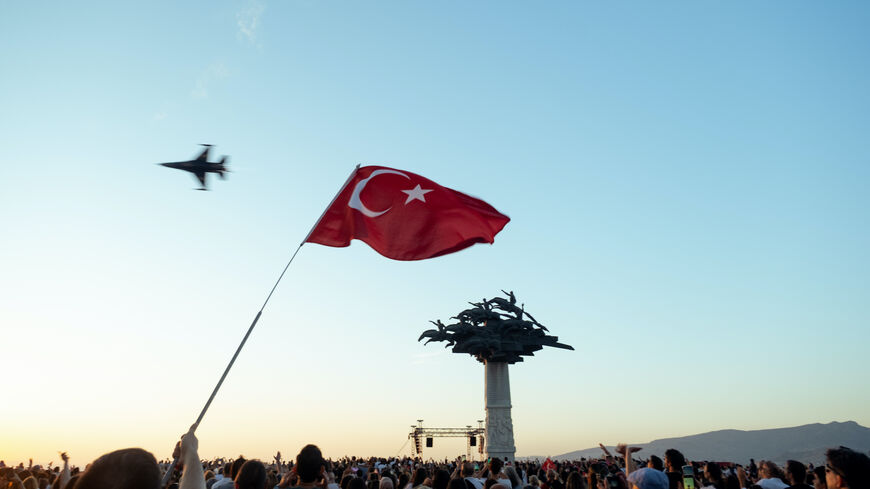Turkey’s fifth-generation fighter jet Kaan completes maiden flight
Kaan's 13-minute flight, at an altitude of 8,000 feet and a speed of 230 knots, is being hailed as a milestone in Turkey’s efforts to maximize self-sufficiency in the defense sector.
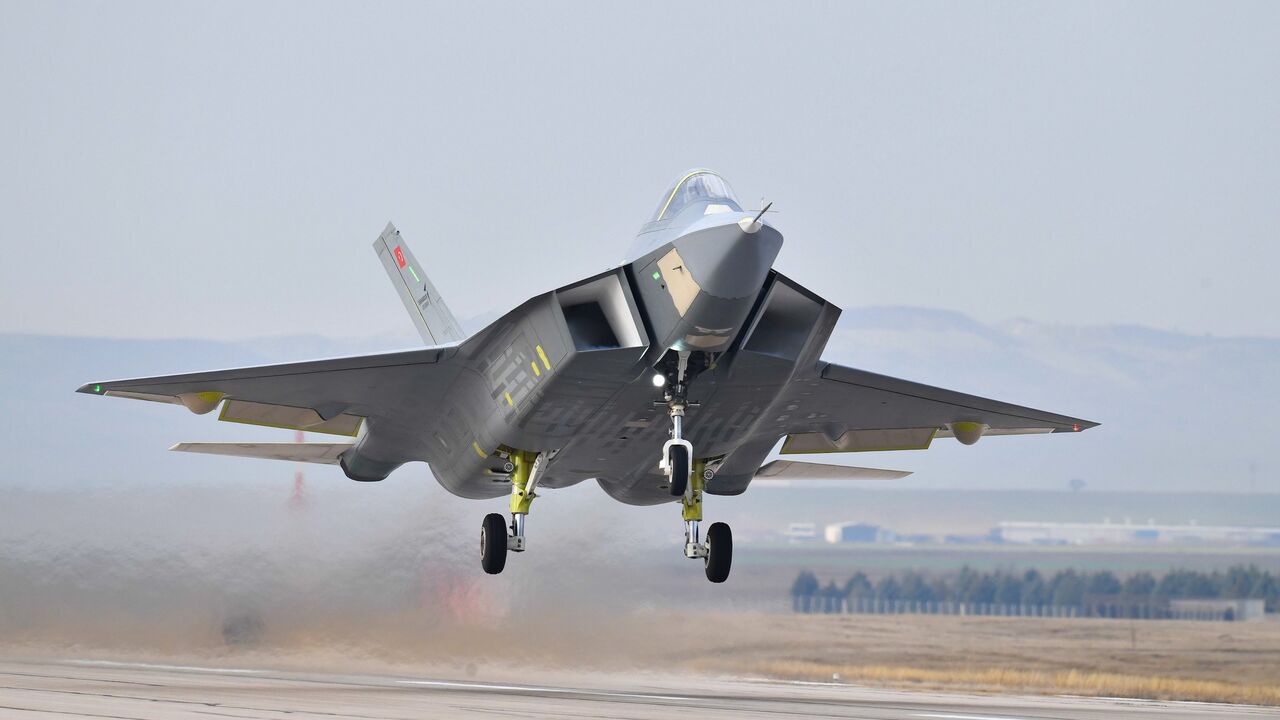
ANKARA — Turkey’s fifth-generation fighter jet, Kaan, completed its maiden flight on Wednesday, marking a turning point for Ankara's defense industry.
“Today is another proud day for the Turkish defense industry. Our national combat aircraft Kaan successfully completed its maiden flight,” Turkish President Recep Tayyip Erdogan said in a televised speech at a rally in western Turkey. “Turkey has passed a critical threshold in producing its own fifth generation fighter jet,” he added.
Kaan is seen taking off from an airstrip and landing after completing its 13-minute flight as employees of Turkish Aerospace Industries, TUSAS, cheered on the tarmac in a video posted by Haluk Gorgun, head of the Turkish Defense Industries Directorate, on the X social media platform.
KAAN, #GökVatan'ı ile buluştu.🇹🇷
.
Cumhurbaşkanımız Sayın @RTErdogan ’ın savunma sanayiinde ülkemize çizdiği yerlilik ve millilik vizyonunun kilometre taşlarından olacak bir gelişmeyi daha tarihimize kazıdık. Hamdolsun…
.
Milli Muharip Uçağımız KAAN’ın ilk uçuşu milletimize… pic.twitter.com/9KMNP8Qveu— Prof. Dr. Haluk Görgün (@halukgorgun) February 21, 2024
The jet reached an altitude of about 8,000 feet and a speed of 230 knots, according to TUSAS.
Gorgun described the flight as a “milestone” in Turkey’s efforts to increase self-sufficiency in the defense sector.
Speaking last month, Gorgun said that Turkey was planning to start mass production of the jet by 2028.
According to the TUSAS website the Kaan project, which was launched in 2016, is aimed at “replacing F-16 aircraft, which are planned to be phased out from the inventory starting from the 2030s.”
TUSAS and UK’s BAE Systems have been working together on the production of the jet under a 2017 contract worth more than $126 million, according to the British company’s website.
Separately, Turkey is also working on a project to produce its own locally manufactured engine jet to be used in Kaan.
Turkey, which has the second-largest standing army of NATO, has sped up its efforts to increase self-sufficiency in the defense industry after a series of defense embargoes by Western powers in the past half-decade over its military involvement in regional conflicts such as Syria and the southern Caucasus as well as its purchase of Russian-made S-400 missile defense systems.
Turkish defense companies' profits have risen dramatically over the past two years, and they have reported combined revenues reaching $5.5 billion in 2022, according to Sweden-based watchdog the Stockholm International Peace Research Institute.



